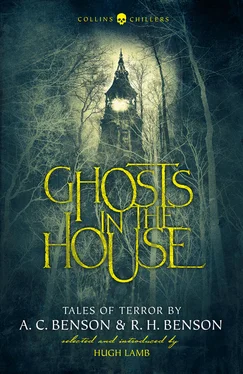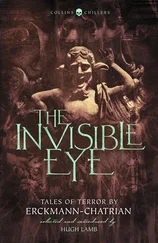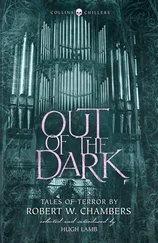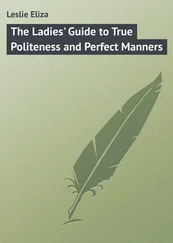The line broke off in an unintelligible flourish. Then on each corner of the last page had been scrawled a cross, with the same ugly and slovenly haste as the crosses on the envelope.
My first thought was that Basil was mad; my next thought that he had drifted into some awkward situation, fallen under some unfortunate influence – was perhaps being blackmailed – and I knew his sensitive character well enough to feel sure that whatever the trouble was it would be exaggerated ten times over by his lively and apprehensive mind. Slowly a situation shaped itself. Basil was a man, as I knew, of an extraordinary austere standard of morals, singularly guileless, and innocent of worldly matters.
Someone, I augured, some unscrupulous woman, had, in the remote spot where he was living, taken a guileful fancy to my poor friend, and had doubtless, after veiled overtures, resolved on a bolder policy and was playing on his sensitive and timid nature by some threat of nameless discourse, some vile and harrowing innuendo.
I read the letter again – and still more clear did it seem to me that he was in some strange durance, and suffering under abominable fears. I rose from my chair and went to find a time-table, that I might see when I could get to Grampound, when again a shuffling footstep drew to my door, an uncertain hand knocked at the panel, and Mr Vyvyan again entered the room. This time his confusion was even greater, if that were possible, than it had previously been. He had forgotten to give me a further message; and he thereupon gave me a filthy scrap of paper, nibbled and stained like the envelope, apologised with unnecessary vehemence, uttered a strangled cough and stumbled from the room.
It was difficult enough to decipher the paper, but I saw that a musical phrase had been written on it; and then in a moment I saw that it was a phrase from an old, extravagant work of Basil’s own, a Credo which we had often discussed together, the grim and fantastic accompaniment of the sentence ‘He descended into hell’.
This came to me as a message of even greater urgency, and I hesitated no longer. I sat down to write a note to the father of my family of pupils, in which I said that important business called me away for two or three days. I looked out a train, and found that by catching the 10 o’clock limited mail I could be at Grampound by 6 in the morning. I ordered a hasty dinner and I packed a few things into a bag, with an oppressive sense of haste. But, as generally happens on such occasions, I found that I had still two or three hours in hand; so I took up Netherby’s music and read it through carefully.
Certainly he had improved wonderfully in handling; but what music it was! It was like nothing of which I had ever even dreamed. There was a wild, intemperate voluptuousness about it, a kind of evil relish of beauty which gave me a painful thrill. To make sure that I was not mistaken, owing to the nervous tension which the strange event had produced in me, I put the things in my pocket and went out to the house of a friend, Dr Grierson, an accomplished and critical musician who lived not far away.
I found the great man at home smoking leisurely. He had a bird-like demeanour, like an ancient stork, as he sat blinking through spectacles astride of a long pointed nose. He had a slight acquaintance with Netherby, and when I mentioned that I had received some new music from him, which I wished to submit to him, he showed obvious interest. ‘A promising fellow,’ he said, ‘only of course too transcendental.’ He took the music in his hand; he settled his spectacles and read. Presently he looked up; and I saw in the kind of shamefaced glance with which he regarded me that he had found something of the same incomprehensible sensuality which had so oddly affected myself in the music. ‘Come, come,’ he said rather severely, ‘this is very strange stuff – this won’t do at all, you know. We must just hear this!’ He rose and went to his piano; and peering into the music, he played the pieces deliberately and critically.
Heard upon the piano, the accent of subtle evil that ran through the music became even more obvious. I seemed to struggle between two feelings – an over-powering admiration, and a sense of shame at my own capacity for admiring it. But the great man was still more moved. He broke off in the middle of a bar and tossed the music to me.
‘This is filthy stuff,’ he said. ‘I should say to you – burn it. It is clever, of course – hideously, devilishly clever. Look at the progression – F sharp against F natural, you observe’ (and he added some technical details with which I need not trouble my readers).
He went on: ‘But the man has no business to think of such things. I don’t like it. Tell him from me that it won’t do. There must be some reticence in art, you know – and there is none here. Tell Netherby that he is on the wrong tack altogether. Good heavens,’ he added, ‘how could the man write it? He used to be a decent sort of fellow.’
It may seem extravagant to write thus of music, but I can only say that it affected me as nothing I had ever heard before. I put it away and we tried to talk of other things; but we could not get the stuff out of our heads. Presently I rose to go, and the Doctor reiterated his warnings still more emphatically. ‘The man is a criminal in art,’ he said, ‘and there must be an end once and for all of this: tell him it’s abominable!’
I went back; caught my train; and was whirled sleepless and excited to the West. Towards morning I fell into a troubled sleep, in which I saw in tangled dreams the figure of a man running restlessly among stony hills. Over and over again the dream came to me; and it was with a grateful heart, though very weary, that I saw a pale light of dawn in the east, and the dark trees and copses along the line becoming more and more defined, by swift gradations, in the chilly autumn air.
It was very still and peaceful when we drew up at Grampound station. I enquired my way to Treheale; and I was told it was three or four miles away. The porter looked rather enquiringly at me; there was no chance of obtaining a vehicle, so I resolved to walk, hoping that I should be freshened by the morning air.
Presently a lane struck off from the main road, which led up a wooded valley, with a swift stream rushing along; in one or two places the chimney of a deserted mine with desolate rubbish-heaps stood beside the road. At one place a square church-tower, with pinnacles, looked solemnly over the wood. The road rose gradually. At last I came to a little hamlet, perched high up on the side of the valley. The scene was incomparably beautiful; the leaves were yellowing fast, and I could see a succession of wooded ridges, with a long line of moorland closing the view.
The little place was just waking into quiet activity. I found a bustling man taking down shutters from a general shop which was also the post-office, and enquired where Mr Netherby lived. The man told me that he was in lodgings at Treheale – ‘the big house itself, where Farmer Hall lives now; if you go straight along the road,’ he added, ‘you will pass the lodge, and Treheale lies up in the wood.’
I was by this time very tired – it was now nearly seven – but I took up my bag again and walked along a road passing between high hedges. Presently the wood closed in again, and I saw a small plastered lodge with a thatched roof standing on the left among some firs. The gate stood wide open, and the road which led into the wood was grass-grown, though with deep ruts, along which heavy laden carts seemed to have passed recently.
The lodge seemed deserted, and I accordingly struck off into the wood. Presently the undergrowth grew thicker, and huge sprawling laurels rose in all directions. Then the track took a sudden turn; and I saw straight in front of me the front of a large Georgian house of brown stone, with a gravel sweep up to the door, but all overgrown with grass.
Читать дальше












